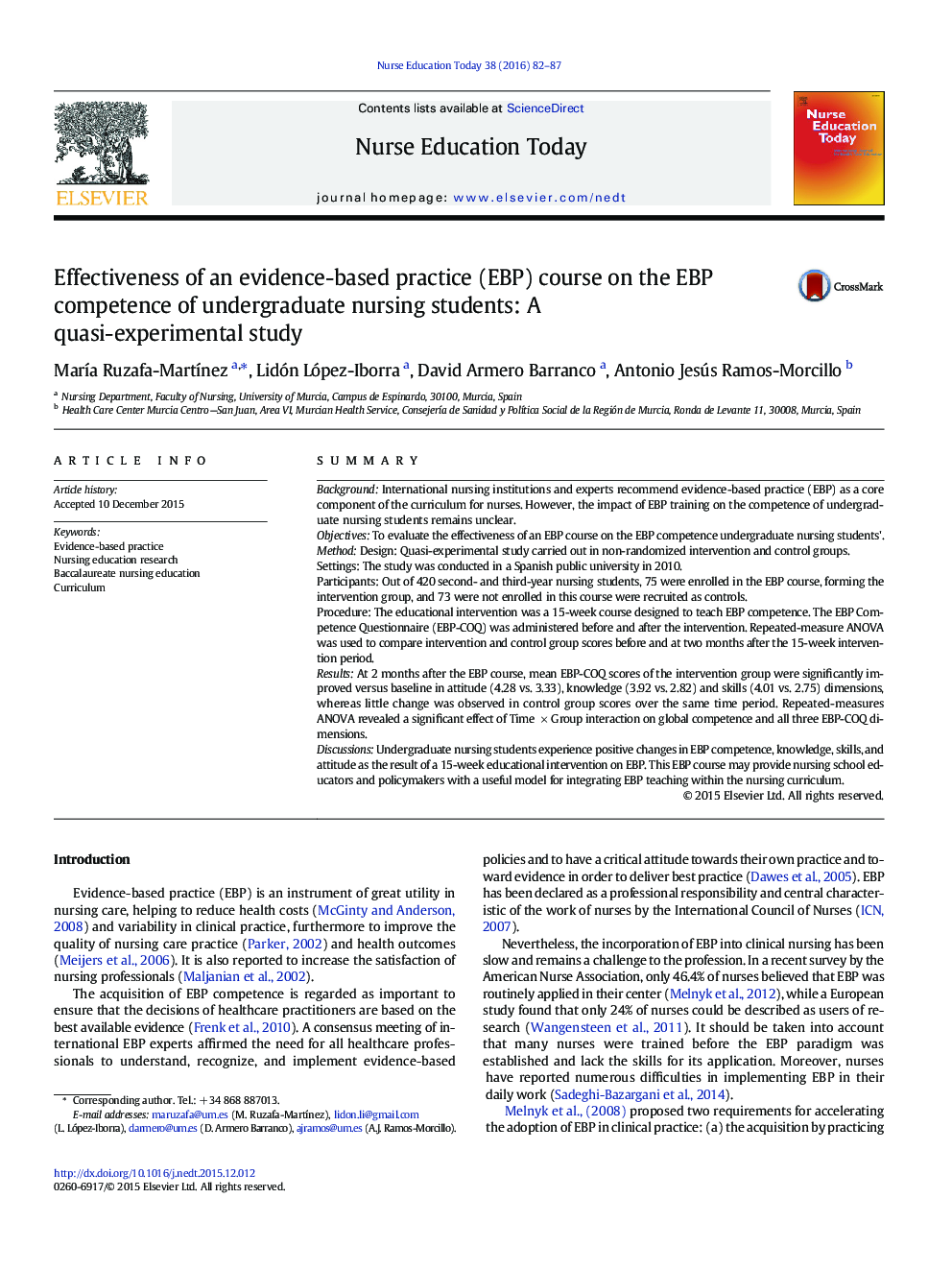| Article ID | Journal | Published Year | Pages | File Type |
|---|---|---|---|---|
| 367892 | Nurse Education Today | 2016 | 6 Pages |
•EBP competence in nursing students has been measured with a validated tool•The intervention consist of a stand-alone course focusing in the first 4 steps of EBP•The EBP course increased the nursing students' EBP attitude, knowledge and skills•Skills in EBP are the domain that increases most of all•We model the introduction of EBP into the nursing curriculum
SummaryBackgroundInternational nursing institutions and experts recommend evidence-based practice (EBP) as a core component of the curriculum for nurses. However, the impact of EBP training on the competence of undergraduate nursing students remains unclear.ObjectivesTo evaluate the effectiveness of an EBP course on the EBP competence undergraduate nursing students'.MethodDesign: Quasi-experimental study carried out in non-randomized intervention and control groups.Settings: The study was conducted in a Spanish public university in 2010.Participants: Out of 420 second- and third-year nursing students, 75 were enrolled in the EBP course, forming the intervention group, and 73 were not enrolled in this course were recruited as controls.Procedure: The educational intervention was a 15-week course designed to teach EBP competence. The EBP Competence Questionnaire (EBP-COQ) was administered before and after the intervention. Repeated-measure ANOVA was used to compare intervention and control group scores before and at two months after the 15-week intervention period.ResultsAt 2 months after the EBP course, mean EBP-COQ scores of the intervention group were significantly improved versus baseline in attitude (4.28 vs. 3.33), knowledge (3.92 vs. 2.82) and skills (4.01 vs. 2.75) dimensions, whereas little change was observed in control group scores over the same time period. Repeated-measures ANOVA revealed a significant effect of Time × Group interaction on global competence and all three EBP-COQ dimensions.DiscussionsUndergraduate nursing students experience positive changes in EBP competence, knowledge, skills, and attitude as the result of a 15-week educational intervention on EBP. This EBP course may provide nursing school educators and policymakers with a useful model for integrating EBP teaching within the nursing curriculum.
